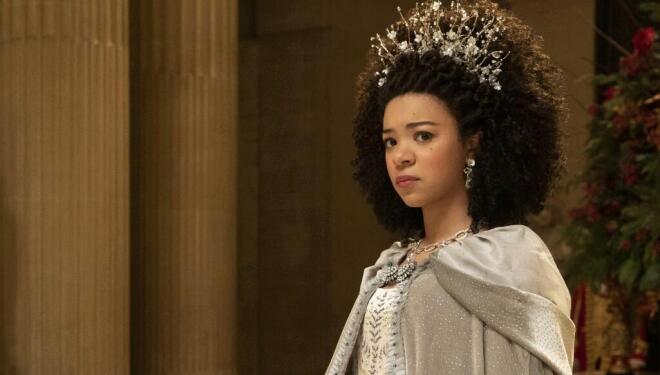
While watching Great Expectations – adapted by Peaky Blinders scribe Steven Knight – you can picture the annoyed facial creases of certain Charles Dickens fans. When Knight’s version of A Christmas Carol aired at the end of 2019, its sootier, grittier atmosphere was shocking after a long history of family-friendly translations. The same daring pervades his latest Dickensian dive: gripping the original story, breaking its fragility, and painting it black.
Whether the author would’ve approved or not is up for debate, but Dickens and Knight are well-suited bedfellows – their penchant for elevated realism crosses between fantastically eccentric characters and eloquent scrutiny of the country of the time. But Knight populates Dickens’ world with sex, swearing, stabbing, and plenty of drugs: presenting one of the darkest visions of London this critic has seen on TV.

Olivia Colman and Fionn Whitehead as Miss Havisham and Pip. Photo: BBC/FX Networks/Miya Mizuno
The
novel's themes are built into the foundations of British culture, especially in regard to
the class system. The parentless blacksmith’s boy Pip is accosted by an escaped
convict, Magwitch, and soon afterwards is embraced by the housebound Miss
Havisham and her adopted daughter Estella. With their help, Pip learns how to
transform himself into an upper-class English gentleman.
It’s a perfect project for Knight, who’s not only extensively examined working-class history in the UK via Peaky Blinders, but he’s also the son of a blacksmith. Every line and every gesture feels genuine, resulting in a refreshingly authentic adaptation despite the stylistic flairs.
Pip as a child (Tom Sweet) is packaged with a decent intelligence, even reciting on-the-nose Shakespeare quotes (‘some have greatness thrust upon them’). But his desperate drive to ascend the social ladder is possessive and corruptive, his identity twisted to fit the less moralistic and more capitalistic London lifestyle.
Olivia Colman is frightening as the jilted Miss Havisham, standing like a cruel and vengeful phantom in her wedding dress – scorning love and desire. She and Estella (who Pip reluctantly fancies) stamp the essential guide to 19th-century aristocratic masculinity into the boy, squashing virginity, morality and, of course, love.

Olivia Colman and Shalom Brune-Franklin as Miss Havisham and Estella. Photo: BBC/FX Networks/Miya Mizuno
When Pip turns 18 (now Fionn Whitehead), the London lawyer
Jaggers (Ashley Thomas) takes him to the Big Smoke – a muddy, smoggy hellscape complete with barfights and brothels and opium dens. Jaggers is infamous for being evil but, like many of the characters’ exterior
impressions, there’s more below the surface. Pip serves as his underwriter,
swiftly thrown into existential disillusionment exacerbated by rum and corpses.
Many of the best adaptations are deliberately disloyal, saying more about the adaptor than the author, and Great Expectations is an excellent case study – especially when discussing the evolved women of the story. Despite being entertainingly written, Dickens’ female characters were often thin and without much agency or nuance. Knight hammers them with depth.
Pip’s older sister Sara Gargery (Hayley Squires) is given sympathy, a sense of humour, and comprehensible reasons for her disciplinarian personality. Biddy (Laurie Ogden) is more than a sweet and smitten country girl: she’s blunt and educated with a liberated spirit. And although Estella (a gripping Shalom Brune-Franklin) is still cold and loveless, she hides a deeper humanity from those around her.
As well as displays of patriarchal power, the series also inserts fascinating racial elements: acknowledging the horrifying legacy of the slave trade (abolished in 1833) while having Black characters at the forefront like Estella and Jaggers. At times, Pip becomes the least interesting story compared to those in his orbit as well as the amoral Empire that swarms him.
Dickens purists will likely loathe this adaptation but, if they’re unhappy, they can always retreat to David Lean. Knight’s version is another in a path of revisionist period dramas that re-examine the context with less nostalgia and romanticism, lending more weight to the marginalised and powerless. It’s a bleak and brutal treasure fished from an endlessly returned-to classic.
Great Expectations airs on Sunday 26 March at 9pm on BBC One.
| What | Great Expectations (2023), BBC One review |
| When |
26 Mar 23 – 26 Mar 24, ON BBC ONE |
| Price | £n/a |
| Website | Click here for more information |





